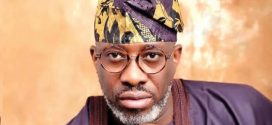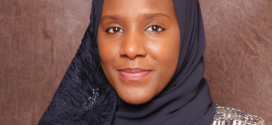In an election season, especially Nigeria’s electoral cycle that can better be described as a scorch-earth contestation for political power in which what the highly Politically Exposed Persons (h-PEP) says can deliberately be misconstrued and/or intentionally twisted in order to arrive at a pre-determined conclusion (no matter how senseless and outlandish) in their bids for votes, anything and anyone is fair game. Nigeria’s Vice President Prof. Yemi Osinbajo (SAN) is once again being pilloried for daring to speak the truth by shedding light on the pathway that his people should take if they’re desirous of contesting for power in 2023. On Saturday, December 22, 2018 during a house-to-house campaign (which was in itself an unprecedented campaign methodology by a Nigerian vice president) in Oyo, Oyo State, Osinbajo, who was reported to have had a 45-minute closed-door meeting with the Alaafin, Oba Lamidi Adeyemi was reported to have said that “Yoruba have a lot to contribute to Nigeria for the 2019 elections. It is for us, Yoruba; if you understand, it is for us. We are not looking at 2019, but 2023. If we don’t get it now, it may take some time again,” among other things.
Ordinarily, the VP’s statement shouldn’t have raised any further eyebrow beyond the right of the Nigerian people to be informed about what their vice president says in his public outings. But in a clime where politics is injected into anything and everything, it was not unexpected that another mountain was insidiously being be made out of a molehill with this statement. The statement (which was true within the contexts of a meeting with the monarch as well as one of the rules of engagement in contesting for Nigeria’s rotational presidential office) was hardly completed when the usual enemies of the Buhari administration such as the rump of Afenifere, a socio-cultural Yoruba group; Ohanaeze Ndigbo, another Southeast socio-cultural pressure group; the opposition Peoples Democratic Party (PDP); and some people in-between who just wanted their rants to be recorded rather than the quality of their thoughts, went to town crying hysterically. In their emotive loquaciousness; misplaced, indecent, inappropriate and uncharitable adjectives such as “divisive” and “dubious” were utilized to characterize the VP’s statement. While PDP’s response to Osinbajo’s statement should not be dignified with any counter response in this piece, considering a debilitating polity they handed back to the Nigerian people after 16 uninterrupted years in governance that witnessed such historical and unprecedented wastage, the ire (or so it seems) of these two socio-cultural groups was probably triggered by what Boss Mustapha, the Secretary to the Government of the Federation said earlier to the people of the Southeast that they should look in the direction of President Muhammadu Buhari in 2019 as their support for his re-election bid this time around is the shortest, if not a bankable route to clinching the presidency in 2023.
But before the VP’s statement can be interrogated as dispassionately as possible, it should be recalled that the Southeast is the only geo-political zone where the stars are yet to be in alignment so they can take charge and decide who gets what and how much of the nation’s pie. So, if the region is advancing their argument for the presidency on the basis of fairness, then it is understandable. It is equally understandable if the region, in their quest for presidential power, they also see fairness as the only political weapon with which others can be bamboozled into gifting them the exalted office. But the contest for political power, it should be emphasized, is unlike any competition as fairness is more often than not the first casualty that almost always limped (if it was lucky not to have been beaten to comatose) out of the main theatres of every power struggles. And power, as history has shown, is never served on an emotional platter.
While Afenifere’s challenge to Osinbajo to name a single thing that the Yoruba has gained in his four years of being in the Number 2 position is laughable at worst, if not ridiculous at best, Ohanaeze’s emotional outbursts in the wake of the VP’s statement and their condescending condemnation of the entire country into all kinds of protracted national malaises until an Igbo becomes the nation’s president is, perhaps, once again, another indication of their usual verbal recklessness on critical national issues. It is another classic reminder that Ndigbo, just like The Bourbons, ‘had learned nothing and forgotten nothing’ in relation to how presidential powers are obtained in a representative democracy. Rather than allow emotionalism as the guiding light in this discourse, it is important to interrogate Osinbajo’s statement within the context of the prevailing socio-political realities on the ground in these times as well as the facts that shapes and determines the trajectory of the nation’s body politic.
But before Osinbajo’s context and the facts of our body politic are brought into the fore, it is important to touch briefly on the responses of Afenifere and Ohanaeze not because of any intrinsic nobility or quality of thoughts inherent in their responses but to bring into the limelight, once again, the groups’ disgusting and sickening hypocrisy on issues of national importance. Afenifere’s claim (in a statement issued by its spokesman Yinka Odumakin) that Osinbajo has always been standing on the path of “all the things that are dear to the Yoruba” and his nonsensical rhetoric in which he insinuated that the Vice President has never done anything for the Yoruba people “in the four years that he has been vice-president” cannot but be deemed as outlandish and foolish. Yet, the same Afenifere it was, whose members were completely in bed with former President Goodluck Jonathan. They campaigned very vigorously (including the use of violence in Lagos), although the campaign was driven by the members’ desire for “stomach infrastructure” more than anything else for the re-election of the former president despite the fact that there was almost no Yoruba in the top echelon of Jonathan’s cabinet except the constitutionally-mandated appointments that reflected federal character. One wonders what happened to their voices then.
Ohanaeze—–whose discomfiture by the VP’s statement may be understandable in terms of fairness—–dropped the ball, once again, and made nonsense of their argument for the nation’s top seat when they said, for all intents and purposes, that it would be more tolerable for Sodom and Gomorrah than for Nigeria if an Igbo man or woman is not made the country’s president. Through their spokesman Uche Achi-Okpaga, Ohanaeze said Nigeria would continue to wallow in “abject socio-political, economic and developmental blindness until an Igbo man becomes the President” and that “anything done in Nigeria without the active cooperation and participation of the Igbo would always crumble.” He went further to say that “the Igbo are the descendants of King David, the man after God’s heart. Anything you do in Nigeria without the active cooperation and participation of the Igbo would always crumble as exemplified in the present administration of PMB. The Igbo are to Nigeria what Israel is to the world today.” Was this a prediction or curse? Are Igbos not significantly represented in Buhari’s government and other vital national institutions even when there are reasons not to have been compensated that much? One may never know why Igbo always shoots themselves in the foot when it was time to argue their case for more inclusion into the body politic, yet, it was the same Ohanaeze who saw nothing wrong in Nnamdi Kanu’s stupidity in calling for the secession of the geo-political region from the Nigerian union and called all the other ethnic groups unprintable names. How they still expect other ethnic nationalities to entrust them with the nation’s destiny with these reckless statements and abuses remains to be seen. The moment you realize you’re in a hole you ought to stop digging.
While it may be argued in some quarters that it is probably impolitic for the Vice President, as the Number 2 father of the Nigerian nation, to have intimated his geo-political region of their chances of clinching the presidential ticket in 2023 when he should be advocating a Pan-Nigerian best person for the exalted seat regardless of his/her ethnic extraction after Buhari’s expected eight-year term, it should be emphasized that Prof. Yemi Osinbajo is first a Yoruba before becoming the nation’s Vice President. He is also of Yoruba ethnic nationality before he’s a Nigerian and, therefore, has every right to not only appeal to his natural political base, but also admonish them to get actively involved now in the imminent 2023 presidential slugfest since they’re a part of the country’s southern half whence the president must necessarily come. That Osinbajo reminded his people that 2023 presents a greater chance for them to have a go at the office is not guaranteed just as the SGF appeal to the Southeast that their shortest route to the presidential villa cannot be said to have been written in stone. The two geo-political zones are legitimately qualified to contest for the office but they still must get their politics right with the rest of the country before they can be confident of their chances in the impending political competition.
Although, one hopes that the Southeast geo-political region will see that it is to their political advantage, if not to demonstrate their gratitude by supporting President Buhari’s re-election bid in view of the unprecedented infrastructural development in the region despite their hostility against candidate Buhari in 2015, and even till date. But there seems to be no significant indication that Ndigbo will redirect their political compass to Daura, most especially in view of the fact that Atiku’s running mate is one of them. Therefore, a safe bet can be made that the voting pattern of the presidential election in 2019 would mimic that of 2015 in which the Southwest, for all practical purposes, would be the decider. The VP’s statement should not only be seen within the aforementioned context (which is a legitimate diagnosis that the Yoruba should claim the right to the exalted seat should this electoral outcome come to pass), but that the ethnic group would not roll over in 2023 when the participation of its progressive political class, for the first time, at both the presidency and some key federal bureaucracies has helped, in no small measure, in changing the nation’s economic trajectory upon which a real and sustainable development can conceivably be built. Osinbajo’s (like Fashola before him) admonition to his people to vote aright in 2019 in order to build strong arguments for 2023 is a legitimate, if not a perfect political strategy. To see this statement otherwise is not only mischievous but the rantings of some needlessly embittered and politically
 Hottestgistnaija.com
Hottestgistnaija.com




